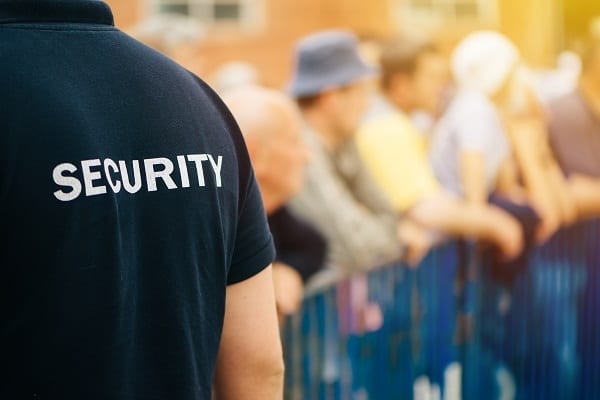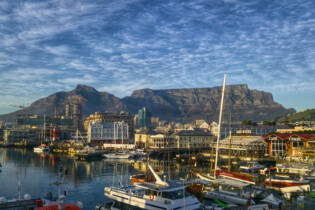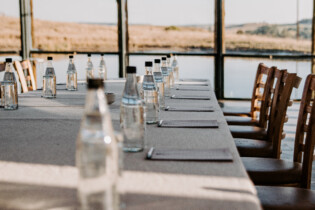The Planner spoke to Andre Botha, a safety manager and consultant to Medguys (www.medguys.co.za), to find out what he finds are the biggest misconceptions event planners have around event safety. These are the five that he most commonly experiences:
- It won’t happen to me or my event
While having a positive outlook is largely a good thing, especially as an event planner, this shouldn’t extend to believing that nothing bad can happy to you or at your events. In the words of Denis Waitley, a good rule of thumb is; “Expect the best, plan for the worst, and prepare to be surprised.”
Planning for the worst definitely includes having a thorough safety plan for your events. Unfortunately there are many things that can go wrong at events, from fires or flooding, to stampedes, nasty accidents, and much, much more. While some of these risks are within your control, others simply aren’t (such as extreme weather conditions). Either way, if you do not anticipate potential problems you will be sorely unprepared to deal with them quickly and effectively, should they arise. Understandably, this can seriously damage your professional reputation.
According to the Safety at Sports and Recreational Events Act. (SASREA) No 2 of 2010, all “sports, recreational, religious, cultural, exhibitional, organisational or similar events held at stadiums, venues or along a route” that have an event capacity that exceeds 2 000 people need to obtain a risk categorisation. If you will have less than 2 000 people, risk categorisation may still be needed, but this is often at the discretion of the venue owner or the event organiser.
Botha adds that you should not assume that smaller events are exempt from event safety considerations. He says, “There have been instances where an event has 20 attendees but the risk is high. In this instance, a lot of factors are taken into consideration, such as location, type of event, duration, availability of medical resources and hospital, etc.” Rather err on the side of caution and approach an event safety company to find out what is needed to ensure your event is safe and compliant with SA regulations.
- The service is (or should be) free
Unfortunately, as with most professional services you hire for your event, hiring a company to assist you with your event safety does come at a cost.
However when you consider what is at stake – keeping your attendees, staff, sponsors and suppliers safe during your events – it should not be a grudge purchase. “Unfortunately, when an event safety company does a great job and everything goes smoothly, an event planner might make the mistake of thinking that they didn’t really need the company’s services. What they fail to recognise is that a large part of the reason everything went smoothly is because the event safety company had helped to create a safe environment for their event,” says Botha.
“Some event organisers also tell us that they don’t have a budget for event safety,” adds Botha. “But event safety should not be seen as an optional add-on. It should be considered just as necessary as having a venue.”
- It is too costly to appoint a Safety Officer
As with the second point, event organisers sometimes struggle with accepting the costs attached to event safety – especially the cost to appoint a Safety Officer.
“Even events that are categorised as low risk require the services of a Safety Officer. This is a legal requirement outlined in the SASREA Act, and not something that event safety companies request simply because they want to,” says Botha.
“Sometimes planners ask that they act as the Safety Officer,” adds Botha. “However, aside from being a bad idea in itself, this is illegal.”
- I don’t need a large amount of security and medical
Your needs are dictated by the type of event you are hosting. Event safety companies are able to work out each event’s unique risks and requirements, and use calculations to then establish the amount of security and medical staff required to adequately service your event – which includes dealing with high-risk scenarios, should they arise.
“Your event might not need many safety personnel,” agrees Botha, “But an event organiser needs to trust their supplier to advise them in their best interests.”
- No one will find out that the event has taken place
It’s true, this could happen. You could plan and manage an event without appointing a Safety Officer or having a safety plan in place, and you could have a very successful event where nothing goes wrong. However, it’s a huge gamble that you are taking at the expense of other people, and you should equally consider the alternative scenarios that could play out, and the consequences should these happen.
In conclusion, Botha recommends you do your research and make sure you appoint a reputable, reliable company to assist you with this necessary service. Ask for some references who you can speak to. Lastly, don’t forget to ask your client or venue owner to share their business compliance certification and public liabilities insurance with you.
Medguys is one of the MICE Academy’s PPS unit strategic partners.







